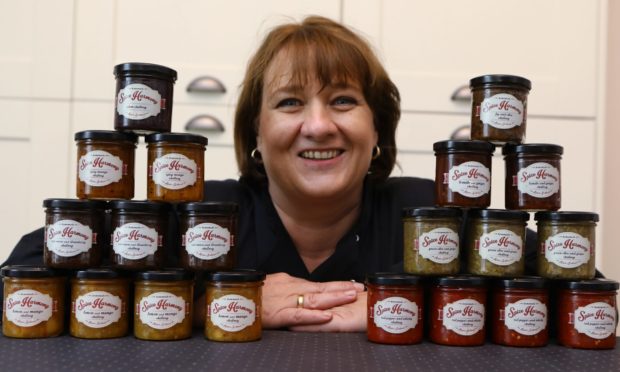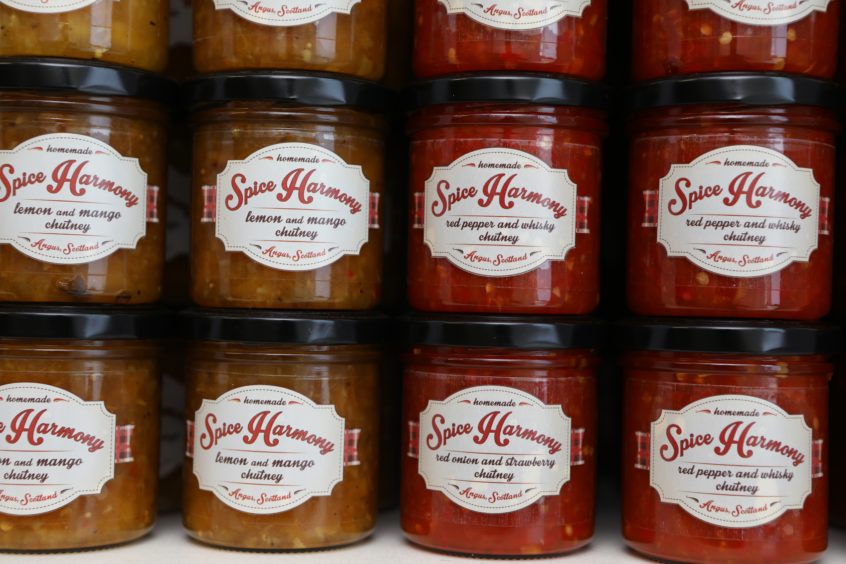
East Germany austerity influences Tayside firm’s unusual chutneys
Growing up in the austerity of East Germany has been a major influence
in the unusual chutney recipes of a Tayside firm.
by Jim MillarDaniela Mather moved to Broughty Ferry from Germany with her Scottish husband David in 2015 and later took part in the Coca-Cola 5by20 business training initiative for women in Dundee.
Having identified a gap in the market for distinctive chutneys, Ms Mather launched Spice Harmony from her home in 2018.
The range is constantly changing with seasonal availability of fresh produce and consists of up to 10 different products.
Current chutney products include red pepper and whisky, red onion and strawberry, mango and physalis and rhubarb and blue grape.

Ms Mather said: “The austerity of East Germany has influenced the recipes I have developed.
“I am always looking at unusual ingredients and combinations using available fresh produce. In Germany, a combination of cheese, crackers and chutney is not a tradition and chutney is quite new.
“I like to encourage people to use chutney in new ways – some flavours go well with salmon for example and I have found people to be very interested and open to try new things.”
The firm had become a feature at various farmers’ markets and food shows, with this year’s Royal Highland Show in the calendar for the first time.
However, the Covid-19 pandemic saw these events cancelled and the company moved to partner with small business retail outlets. Spice Harmony products can now be found on sale in a growing number of outlets in Dundee, Edinburgh and Stirling.
A website launched earlier this year has also allowed the company to develop an online sales platform.
All of the chutneys are prepared in small batches in a specially designated second kitchen in the family home.
For some companies, the goal is rapid expansion, but for Spice Harmony, chutney produced in small batches remains the way forward.
Ms Mather said: “I think when something has started off as being home-made moves into factory production, it can lose a lot, so I don’t see a move into large-scale production.”